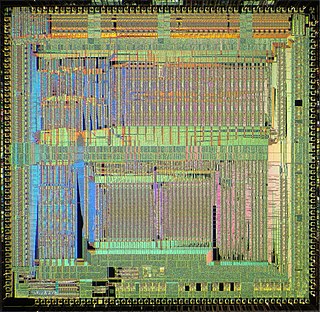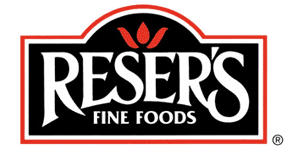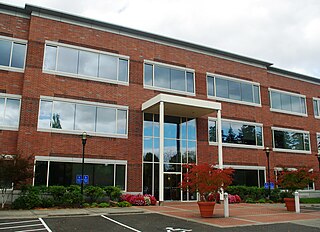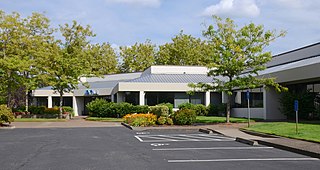
Silicon Forest is a Washington County cluster of high-tech companies located in the Portland metropolitan area in the U.S. state of Oregon. The term most frequently refers to the industrial corridor between Beaverton and Hillsboro in northwest Oregon. The high-technology industry accounted for 19 percent of Oregon's economy in 2005, and the Silicon Forest name has been applied to the industry throughout the state in such places as Corvallis, Bend, and White City. Nevertheless, the name refers primarily to the Portland metropolitan area, where about 1,500 high-tech firms were located as of 2006.

Tektronix, Inc., historically widely known as Tek, is an American company best known for manufacturing test and measurement devices such as oscilloscopes, logic analyzers, and video and mobile test protocol equipment. Originally an independent company, it is now a subsidiary of Fortive, a spinoff from Danaher Corporation.

Bipolar Integrated Technology, Inc. (BIT), later Bit, Inc., was a privately held semiconductor company based in Beaverton, Oregon, which sold products implemented with emitter-coupled logic technology. The company was founded in 1983 by former Floating Point Systems, Intel, and Tektronix engineers. The company, which occupied a 46,000-square-foot manufacturing facility at the Oregon Graduate Center, raised $36 million in start-up capital within three years of its foundation.

Floating Point Systems, Inc. (FPS), was a Beaverton, Oregon vendor of attached array processors and minisupercomputers. The company was founded in 1970 by former Tektronix engineer Norm Winningstad, with partners Tom Prince, Frank Bouton and Robert Carter. Carter was a salesman for Data General Corp. who persuaded Bouton and Prince to leave Tektronix to start the new company. Winningstad was the fourth partner.

InFocus Corporation is a privately owned American company based in the state of Oregon. Founded in 1986, the company develops, manufactures, and distributes DLP and LCD projectors and accessories as well as large-format touch displays, software, LED televisions, tablets and smartphones. InFocus also offers video calling services. Formerly a NASDAQ listed public company, InFocus was purchased by Image Holdings Corp., owned by John Hui, in 2009 and is now a wholly owned subsidiary headquartered in Tigard, Oregon.
Lattice Semiconductor Corporation is an American semiconductor company specializing in the design and manufacturing of low power field-programmable gate arrays (FPGAs). Headquartered in the Silicon Forest area of Hillsboro, Oregon, the company also has operations in San Jose, Calif., Shanghai, Manila, Penang, and Singapore. Lattice Semiconductor has more than 1000 employees and an annual revenue of more than $660 million as of 2022. The company was founded in 1983 and went public in 1989. It is traded on the Nasdaq stock exchange under the symbol LSCC.
Planar Systems, Inc. is an American digital display manufacturing corporation with a facility in Hillsboro, Oregon. Founded in 1983 as a spin-off from Tektronix, it was the first U.S. manufacturer of electroluminescent (EL) digital displays. Planar currently makes a variety of other specialty displays, and has been an independent subsidiary of Leyard Optoelectronic Co. since 2015. The headquarters, leadership team and employees still remain in Hillsboro, Oregon.

Reser's Fine Foods, Inc., an American corporation based in Beaverton, Oregon, manufactures and distributes fresh and refrigerated prepared foods. Over 1,000 products are available in the 50 U.S. states, Canada, Guam, Mexico, and areas of the Far East. Its prepared foods are sold in national grocery chains, independent outlets, and convenience stores. Oregon State University's football stadium, Reser Stadium, is named after the company, which is one of its sponsors. The company recalled 19 salad products distributed in 29 states in 2016 for possible listeria contamination. Reser's consistently ranks in the top ten privately held Oregon companies by annual revenue.
Radisys Corporation is an American technology company located in Hillsboro, Oregon, United States that makes technology used by telecommunications companies in mobile networks. Founded in 1987 in Oregon by former employees of Intel, the company went public in 1995. The company's products are used in mobile network applications such as small cell radio access networks, wireless core network elements, deep packet inspection and policy management equipment; conferencing, and media services including voice, video and data. In 2015, the first-quarter revenues of Radisys totaled $48.7 million, and approximately employed 700 people. Arun Bhikshesvaran is the company's chief executive officer.

Tripwire, Inc. is a software company based in Portland, Oregon, that focuses on security and compliance automation. It is a subsidiary of technology company Fortra.

TriQuint Semiconductor was a semiconductor company that designed, manufactured, and supplied high-performance RF modules, components and foundry services. The company was founded in 1985 in Beaverton, Oregon, before moving to neighboring Hillsboro, Oregon. In February 2014, Greensboro, North Carolina–based RF Micro Devices and TriQuint announced a merger in which the new company would be Qorvo, Inc., with the merger completed on January 1, 2015.

The economy of the U.S. state of Oregon is made up of a number of sectors. During the 1990s and 2000s, Oregon has attempted to transition its economy from one based on natural resources to one based on a mix of manufacturing, services, and high technology.

Jive Software, an Aurea Software company, is a provider of communication and collaboration software for business.
Axium is a privately held software company founded in 1993 and based in Portland, Oregon. Axium has created accounting, project management, and business development software for the architecture and engineering (A/E) industries. Axium was named one of the fastest-growing private companies by the Portland Business Journal in 2008, 2009, and 2010. Axium was rated as one of the top 100 companies to work for in the State of Oregon in 2009 and 2010 by Oregon Business magazine.
Electro Scientific Industries, Inc. (ESI) is an American high technology company headquartered in the Portland, Oregon, metropolitan area, specifically in Beaverton, Oregon, since 2021, but from 1963–2021, it was based in the unincorporated Cedar Mill area just north of Beaverton. ESI is a developer and supplier of photonic and laser systems for microelectronics manufacturers. Founded in 1944, it is the oldest high-tech company in Oregon. Along with Tektronix, and later Intel, it has spawned numerous technology-based companies in the Portland area, an area known as the Silicon Forest. From 1983 to 2019, shares in the company were publicly traded on NASDAQ, under the ticker symbol ESIO.

C. Norman (Norm) Winningstad was an American engineer and businessman in the state of Oregon. A native of California, he served in the U.S. Navy during World War II before working at what is now Lawrence Berkeley National Laboratory. After moving north to Oregon, he started working for Tektronix before starting several companies in what became the Silicon Forest in the Portland metropolitan area. He founded or helped to found Floating Point Systems, Lattice Semiconductor, and Thrustmaster. Winningstad and his wife were also noted philanthropists in the Portland area, with a theater at the Portland Center for the Performing Arts named in his wife Dolores' honor.
Cascade Microtech is a semiconductor test equipment manufacturer based in Beaverton in the Portland metropolitan area of the United States. Founded in 1983, the Oregon-based company employs nearly 400 people. Formerly publicly traded company as CSCD on the NASDAQ, the company is now fully merged with FormFactor, Inc.

MathStar, Inc., was an American, fabless semiconductor company based in Oregon. Founded in Minnesota in 1999, the company moved to the Portland metropolitan area where it remained until it completed a reverse merger with Sajan, Inc. in 2010. MathStar never made a profit after raising $137 million over the lifetime of the company, including via several stock offerings while the company was publicly traded on the NASDAQ market. The company's only product was a field programmable object array (FPOA) chip.

Enli Health Intelligence was a privately held software company based in Beaverton, Oregon, and previously in Hillsboro, Oregon. Founded in 2001 as Kryptiq Corporation, the company specialized in electronic medical records and secure communications between physicians and patients. The 125-employee company was purchased by Surescripts in 2012, which was a previous investor in the company. Annual revenues at the time of the sale were approximately $25 million. In January 2015, the company announced that it was splitting from Surescripts and becoming independent again. Later in 2015, it was renamed Enli Health Intelligence. In 2021, it was acquired by Cedar Gate Technologies, which discontinued use of the Enli name.
TTM Technologies, Inc. is an American printed circuit board (PCB) manufacturer headquartered in Santa Ana, California. Founded in 1998, the company is one of the top five PCB manufacturers in the world and the largest in North America, and the largest supplier of PCBs to the U.S. military. TTM serves customers in industries including aerospace and defense, medical, industrial, automotive, computing, and networking.












